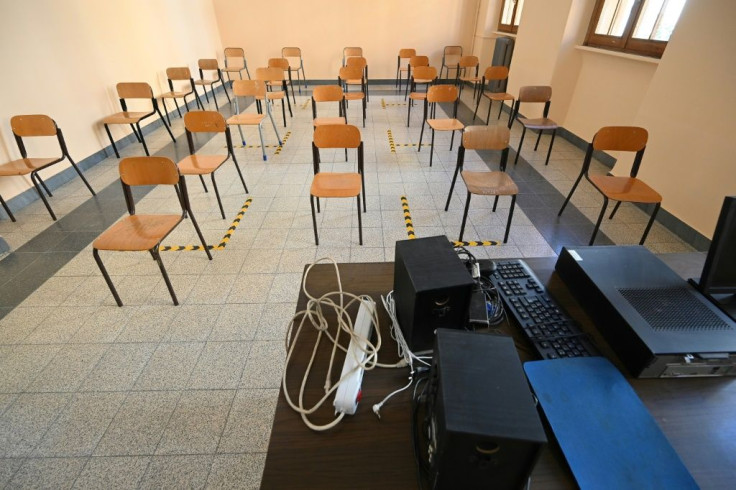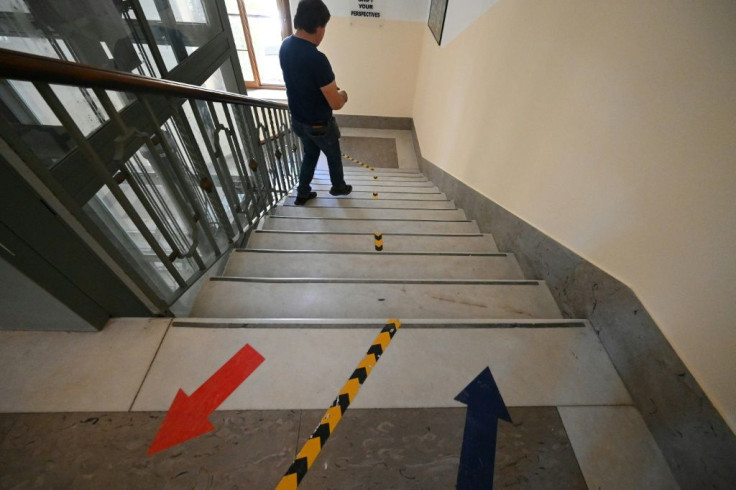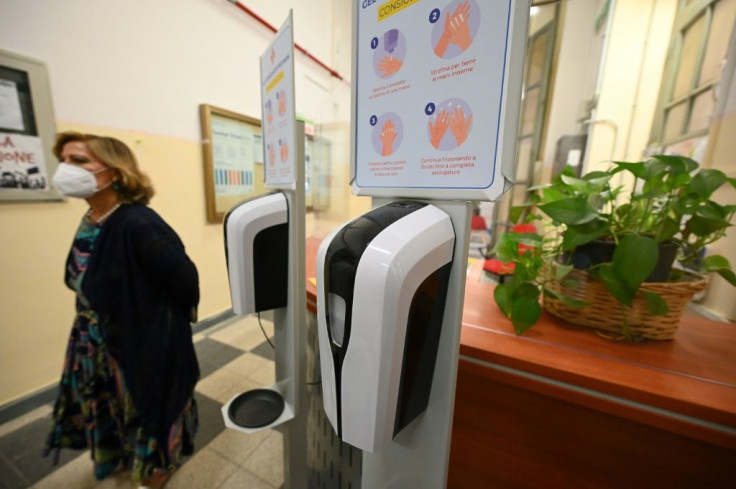Bell Rings On New Virus-era Reality At Italy Schools
Millions of Italian pupils head back to the classroom next week after six months at home, confronting a new reality of outdoor lessons, coronavirus "isolation rooms" and even a possible ban on singing.
While some in the north of the country already returned this week, the majority of Italy's around eight million school pupils go back on Monday after the coronavirus shuttered classes in early March.
Italy was one of the first European countries to be hard hit by Covid-19, which has so far killed more than 35,500 people in the country, out of a total of more than 280,000 cases.
Prime Minister Giuseppe Conte vowed on Wednesday to make a safe return to school "a beacon of the government."
"Thank you, you have paid the highest price in this crisis," he said, addressing schoolchildren, during a televised news conference.
"Closing schools and distance learning have been a huge burden," he added.

Italian Education Minister Lucia Azzolina said that more than 5,000 extra classrooms had been created.
Nevertheless, some southern regions like Puglia and Calabria have already postponed the reopening until September 24, over concerns about being ready to meet all the coronavirus requirements.
At Rome's Luigi Einaudi technical high school, staff were hard at work this week to "covid-proof" the premises and prepare for the return of its 1,000 pupils.
"We're a completely different school compared to the one on March 6," said principal Diana Guerani, referring to the date on which the Lazio region closed classrooms as the virus tightened its grip on Italy.
"It's a completely new situation, but we have to face it," Guerani told AFP, as outfitters noisily moved in new single-seat desks to be placed a mandatory one metre (3.3 feet) apart.

"We want to make sure the transition is as smooth as possible," she added.
The school, which opened 58 years ago and is named after Italy's second president and anti-fascist journalist, is a stone's throw away from Saint Peter's Basilica in nearby Vatican City.
As well as special tape on the floor indicating the direction of movement, the school has added frequent hand sanitiser dispensers, provided by the Italian government which has pledged that 170,000 litres of disinfectant gel will be available per week across the country.
Like all Italian pupils over the age of six, students will have to wear face masks -- some 11 million free masks are being provided to teaching staff and pupils daily.
At the school's entrance, a scanning camera will set off an alarm if a pupil has a temperature -- or enters without wearing a mask.
"Pupils identified with a high temperature are immediately isolated and brought to a special 'covid' room where protocols have been put in place" to test for the virus, teacher Marina Di Foggia said.
The room has a separate exit, from which any ill pupils can then leave for home, she told AFP.

And a programme introduced in September last year -- to teach outdoor classes at Luigi Einaudi "as long as the weather holds" -- is also being broadened out, Guerani said.
Italian officials say the country's back-to-school strategy revolves around the immediate quarantine of those who have been "in close contact" with a student or teacher testing positive for Covid-19.
After a positive result, pupils will only be allowed back to school following two subsequent negative ones, carried out a day apart.
Close communication between families and schools will also be key, with schools undertaking rigorous roll-calls to trace absent students and contacts in case of infection.
Italy's Covid-19 scientific advisors have recommended even stricter measures, including banning singing due to the risk of spreading the virus.
The Save the Children charity last week said that seven out of 10 Italian parents were worried about sending their children back to school.
Meanwhile, in the northern city of Milan, which was particularly hard hit by the virus, some pupils were already back in front of the blackboards this week.
Laura Bonnano, 16, said that she was happy to see her friends again after six months at home.
"Wearing a mask all day is a bit tedious," she told AFP, adding: "After a while you get used to it."
jhe-cco/kjm/tom
© Copyright AFP 2024. All rights reserved.





















